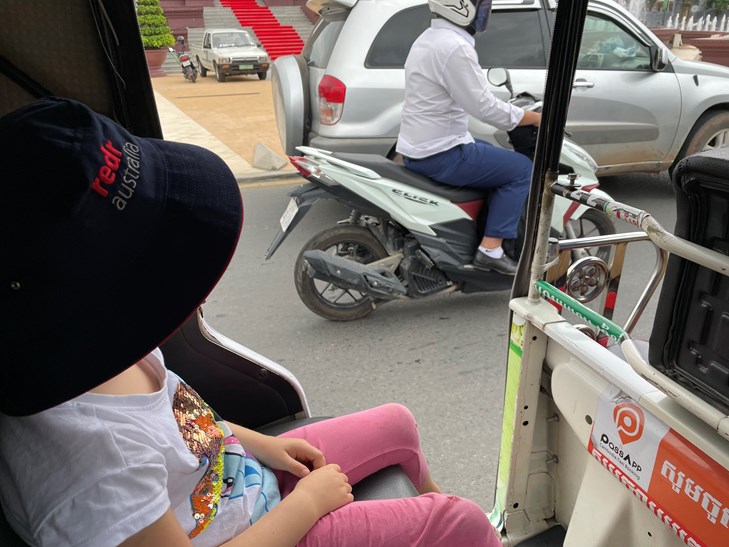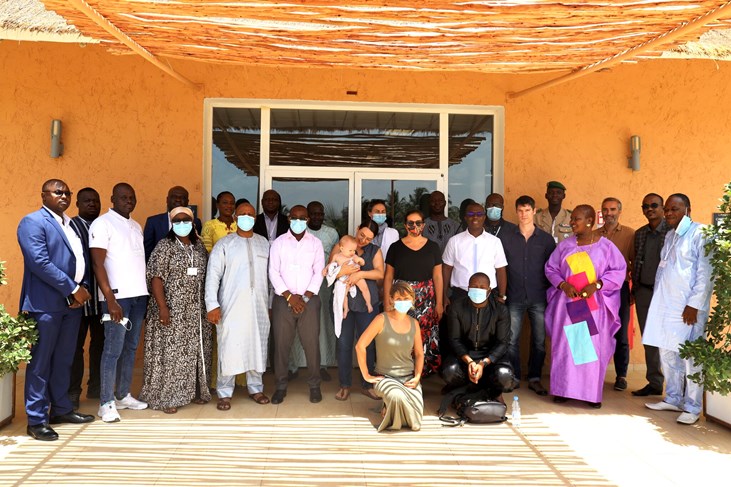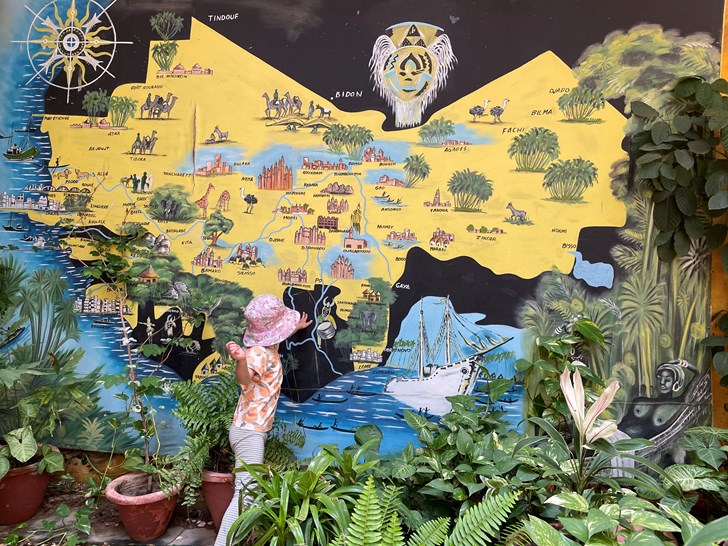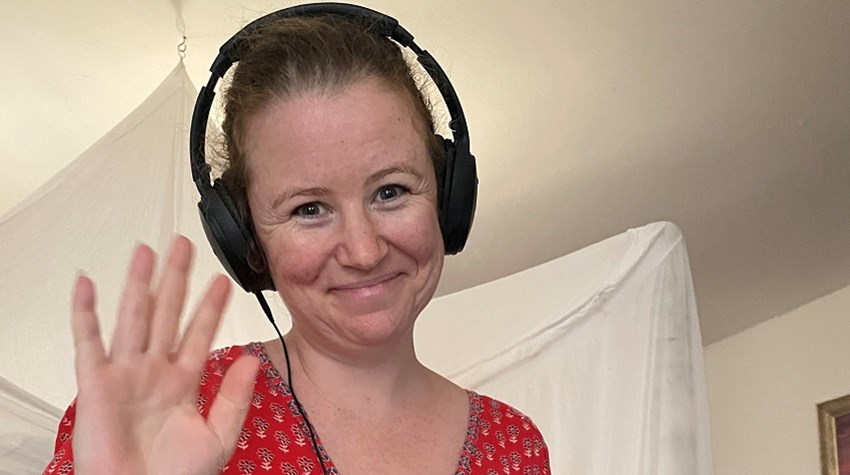When RedR Roster member Luisa was deployed to Senegal in March 2021 to support the United Nations’ civil-military coordination efforts in West Africa, she had a small companion in tow – her four-year-old daughter.
The four-and-a-half month deployment, funded through RedR’s partnership with the UK Government’s Foreign, Commonwealth and Development Office, was the first time RedR had trialled an accompanied deployment, as it expands its support for Roster members with families.
By all accounts, the trial was a great success and Luisa and Ella, now five, have recently arrived in Phnom Penh, where Luisa has again been deployed, this time through the Australian Government’s Australia Assists program, to work with the World Health Organisation (WHO) disseminating critical information on COVID-19.
"Having these accompanied deployments means everything to me. I love working in this field, I feel fulfilled, happy and challenged. But it's even better that I get to share what I love with my daughter. She is already learning some Khmer language and culture, and her social skills and sense of adventure are expanding by the day. She wants to know where we can go and explore next!" Luisa said.

Ella enjoys a tuk-tuk ride on the streets on Phnom Penh, Cambodia, where mother Luisa is on deployment.
Looking back on their first deployment together, Luisa said the fact Senegal was in lockdown for much of their time there turned out to be a blessing in disguise. It meant that throughout her deployment with the United Nations Office for the Coordination of Humanitarian Affairs (OCHA) she was working from their apartment in the country’s capital, Dakar, and could help Ella settle into her new surrounds and get to know her Senegalese nanny, Rosalie.
“If I’d needed to go into the office from day one, that would have been really difficult. The pandemic gave us a soft start,” Luisa said.
The deployment was also made easier by the fact that mother and daughter are both seasoned travellers and proficient in French, and that Ella is in the “sweet spot” age wise. Not quite old enough for school, Ella would spend her days with Rosalie at a kids’ club on the beach, swimming, fishing and catching crabs with children from local and expat families.
“You could almost see her brain expanding,” Luisa said.
A career in humanitarianism was a “matter of luck” for Luisa, whose interest in global affairs was ignited on an exchange to Japan at the age of 12.
More than a decade later, after studying international relations, French and Spanish, Luisa undertook an internship at the Australian Mission to the United Nations in New York, followed by another in Brussels with the International Crisis Group.
Next came a role with United Nations Volunteers in Nepal, where she developed specialised skills in monitoring and evaluation, then five years working with the United Nations Organization Stabilization Mission in the Democratic Republic of the Congo.
“This is how I got interested in civil-military coordination,” Luisa explained.
As many emergency settings involve a military presence, ensuring civil society and military actors cooperate and coordinate efforts is essential to protect and promote humanitarian principles.
In her role with OCHA’s Regional Office for West and Central Africa, Luisa worked as part of an all-female team – a rarity in a traditionally male-dominated sector – to develop a civil-military coordination roadmap to guide the organisation’s work at a local, country and regional level. The aim was to advance the women, peace and stability agenda and enable a safer humanitarian operating environment to ensure support can reach populations in need across the region.
To inform the roadmap, Luisa organised workshops with OCHA staff and other humanitarian workers from across the region. A five-day session that brought together civilian and military actors from Senegal, Burkina Faso, Mali and Niger was one of very few conducted in French and the first in-person civil-military coordination training since the beginning of the pandemic. It was tailored to the local humanitarian context as well as the continent’s different military cultures.
“Previously, training has been largely run out of Geneva, and in English. My deployment really demonstrated the need for – and focused on – French language training and learning resources,” Luisa said.

Participants attend five-day residential training on civil-military coordination for the Central Sahel region, organised by RedR Roster member Luisa.
She also proposed dedicated training to help teaching staff in the region’s military schools integrate civil-military coordination into their curriculum.
Spending her days in Senegal largely on video calls, Luisa would walk with Ella and Rosalie to the beach in the evenings, when the whole neighbourhood would spill onto the sand as soon as the temperature dropped.
“There was a real community atmosphere, with teenagers playing football and parents bathing kids,” Luisa said. “I was always calling, ‘Ella, Ella, Ella’, so after three days, the whole beach knew who Ella was, and where she was at all times.”
After returning home to Brisbane in July, Luisa continued to support civil-military coordination training with the Australian Defence Force while also lecturing at the University of Queensland.
Ella eagerly shared what she learned about African animals and culture with her kindergarten classmates. The pair have also kept in touch with their Dakar community, regularly exchanging photos and videos with Rosalie.

In Dakar, Senegal, Ella explores a colourful map marking places of significance across West Africa.
Never staying put for long, Luisa and Ella are busy settling into their new life in Cambodia, where Luisa’s new deployment through Australia Assists will be crucial to WHO’s local COVID-19 communications strategy over the next six months. Ella will also be kept occupied, with her education in global citizenship continuing in local markets, palaces and play centres.
“So far we love Cambodia!” Luisa said. “Ella has quickly settled into kindy, and we're surrounded by a friendly community in our little neighbourhood. On our morning walk to school, we know everyone from the corner tuk-tuk drivers to the roadside barber (Ella's favourite). We really feel at home.”


